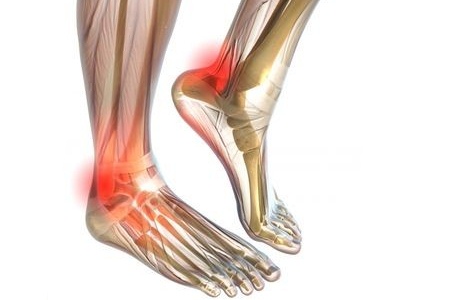Health Issues Facing Diabetic Patients Today
1. HEART DI SEASE is one of the leading causes of death in diabetic patients. Continuous increases in blood sugar results in a gradual build-up of fat and deposition on the blood vessel walls causing them to harden. These hardened vessel walls become narrowed and plaques may break off leading to a heart attack or stroke. You may be at an even greater risk if you have high blood pressure and/or high cholesterol as well. Please click here to learn more about your risk factors and what you can do to help prevent this disease. Routine checkups, lifestyle modifications and medication adherence are key factors in managing patients with heart disease and play a vital role in decreasing morbidity and mortality. Don’t forget to monitor your blood sugar regularly and talk to your health care provider about any concerns you may have!
SEASE is one of the leading causes of death in diabetic patients. Continuous increases in blood sugar results in a gradual build-up of fat and deposition on the blood vessel walls causing them to harden. These hardened vessel walls become narrowed and plaques may break off leading to a heart attack or stroke. You may be at an even greater risk if you have high blood pressure and/or high cholesterol as well. Please click here to learn more about your risk factors and what you can do to help prevent this disease. Routine checkups, lifestyle modifications and medication adherence are key factors in managing patients with heart disease and play a vital role in decreasing morbidity and mortality. Don’t forget to monitor your blood sugar regularly and talk to your health care provider about any concerns you may have!
2. OBESITY puts patients at an increased risk for high blood pressure, high cholesterol, and diabetes. One  way to better control your disease state without medication is to lose weight. Two good ways to do that are diet and exercise. Not only will changing your diet and exercise routine help with weight loss, but it will also help you feel better and happier! Please click here and here for more information about where and how to start incorporating healthy choices into your daily routine. Don’t forget your friendly Health Park Pharmacy staff is also here to support you in your lifestyle modifications and can help to get you started or answer any questions you may have about proper diet and exercise.
way to better control your disease state without medication is to lose weight. Two good ways to do that are diet and exercise. Not only will changing your diet and exercise routine help with weight loss, but it will also help you feel better and happier! Please click here and here for more information about where and how to start incorporating healthy choices into your daily routine. Don’t forget your friendly Health Park Pharmacy staff is also here to support you in your lifestyle modifications and can help to get you started or answer any questions you may have about proper diet and exercise.
3. HYPOGLY CEMIA is also known as low blood sugar. This typically occurs when your blood sugar drops below 70 mg/dl, but may occur at a higher level if your body is used to higher than normal blood sugar levels. Signs and symptoms of hypoglycemia include shakiness, fast heartbeat, sweating and/or chills, dizziness or feeling lightheaded, nervousness, anxiety, hunger or nausea, blurry vision, weakness, fatigue, irritability, and confusion. Severe or untreated hypoglycemia could lead to accidents, coma, or death. Hypoglycemia can be treated by consuming 15-20 grams of glucose or carbohydrates, which can be found in glucose tablets or gels, 2 tablespoons of raisins, 1/2 cup of juice or regular (non-diet) soda, 1 tablespoon of sugar, honey or corn syrup, or hard candies. Your doctor may also prescribe you a glucagon kit, which can be used by someone else if you become unconscious. Click here to learn more about hypoglycemia.
CEMIA is also known as low blood sugar. This typically occurs when your blood sugar drops below 70 mg/dl, but may occur at a higher level if your body is used to higher than normal blood sugar levels. Signs and symptoms of hypoglycemia include shakiness, fast heartbeat, sweating and/or chills, dizziness or feeling lightheaded, nervousness, anxiety, hunger or nausea, blurry vision, weakness, fatigue, irritability, and confusion. Severe or untreated hypoglycemia could lead to accidents, coma, or death. Hypoglycemia can be treated by consuming 15-20 grams of glucose or carbohydrates, which can be found in glucose tablets or gels, 2 tablespoons of raisins, 1/2 cup of juice or regular (non-diet) soda, 1 tablespoon of sugar, honey or corn syrup, or hard candies. Your doctor may also prescribe you a glucagon kit, which can be used by someone else if you become unconscious. Click here to learn more about hypoglycemia.

4. KIDNEY DISEASE is caused when the kidneys lose their ability to filter out waste products into the urine. In diabetes, high blood sugar can cause the kidneys to filter too much blood, which can lead to damage of the filters in the kidney. This causes the filters to leak, so useful products, such as proteins, are lost in the urine and waste products begin to build-up in the body. Managing your diabetes and keeping your blood sugar within your target range can help prevent kidney disease. Click here to learn more about kidney disease in diabetes.
5. NERVE DAMAGE is also known as diabetic neuropathy. This occurs when high blood sugar over time damages the coating of nerves throughout the body. Some signs of nerve damage include burning, tingling, pain or numbness in your hands or feet. Your doctor should perform foot and nerve checks at least once a year. For more information about nerve damage related to diabetes, please click here.

